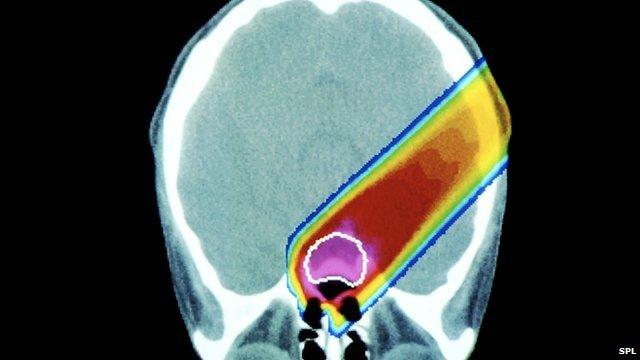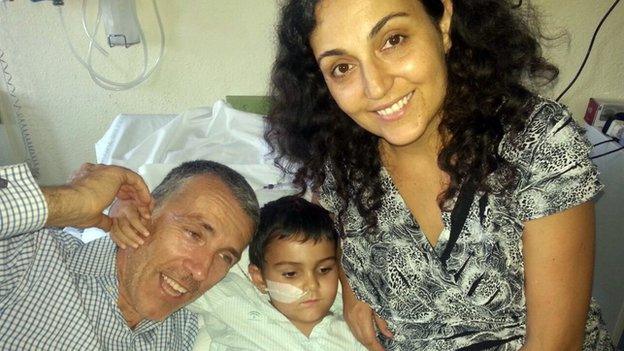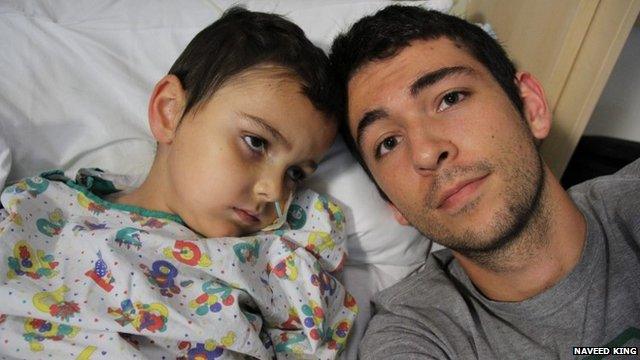UK proton beam centres to open in 2018
- Published

Proton beam therapy can offer a more targeted approach
Proton beam therapy to treat children with brain cancer will be available in the UK by 2018, NHS experts say.
The confirmation follows controversy about Ashya King, a five-year-old with a brain tumour, whose parents took him to the Czech Republic for the therapy
Dr Adrian Crellin, of NHS England, said clinics in Manchester and London would treat their first patients in 2018.
And some children with medulloblastoma tumours - the type of cancer Ashya has - could be offered therapy.
Targeted radiation
But doctors warned each case would need to be considered on individual merit, as factors determining whether proton beam therapy offered advantages over traditional radiotherapy were complex.
The main benefit of proton treatment is its ability to allow more targeted radiation to tumours while minimising harmful radiation to surrounding healthy tissues.
And for certain childhood tumours it is thought the therapy offers some hope of reducing long-term side effects of radiation.
Some 100 children were granted NHS approval to attend centres in the US and Switzerland last year.
But despite the existence of many more clinics across the US and Europe, NHS authorities said they would only fund treatment where they had established links.
Dr Crellin expressed concerns about clinical practice seen in some centres that do not hold NHS approval.
'Commercial concerns'
He said: "Commercial pressures, particularly in the US, may have lead to a large number of patients being treated where there is less certain evidence of gain.
"For example with prostate cancer, there is no strong evidence this treatment has benefits over conventional treatment."
He added: "The important thing for doctors here is to be able to trust and know the standards of care are good elsewhere."
Experts said though patients contacted them in the "last desperate hope that protons will be a magic treatment" the therapy would not work in every case.
Doctors stressed that coordinating the exact time of chemotherapy, surgery and radiation were key - so the time taken to travel abroad and set up individual treatment could lead to more harm than good.
It is hoped the new UK centres will offer therapy for certain cancers that are currently too risky to treat because of how critical timing is to the success of treatment.
Dr Yen-Ching Chang, a cancer doctor who works with children with cancer at University College London, said: "If that window is missed, the tumour may have re-grown, so the chances of curing the patient are reduced."
The UK proton beam centres will be based at University College London Hospital and The Christie in Manchester and will offer treatment across the UK.
- Published9 September 2014

- Published8 September 2014
